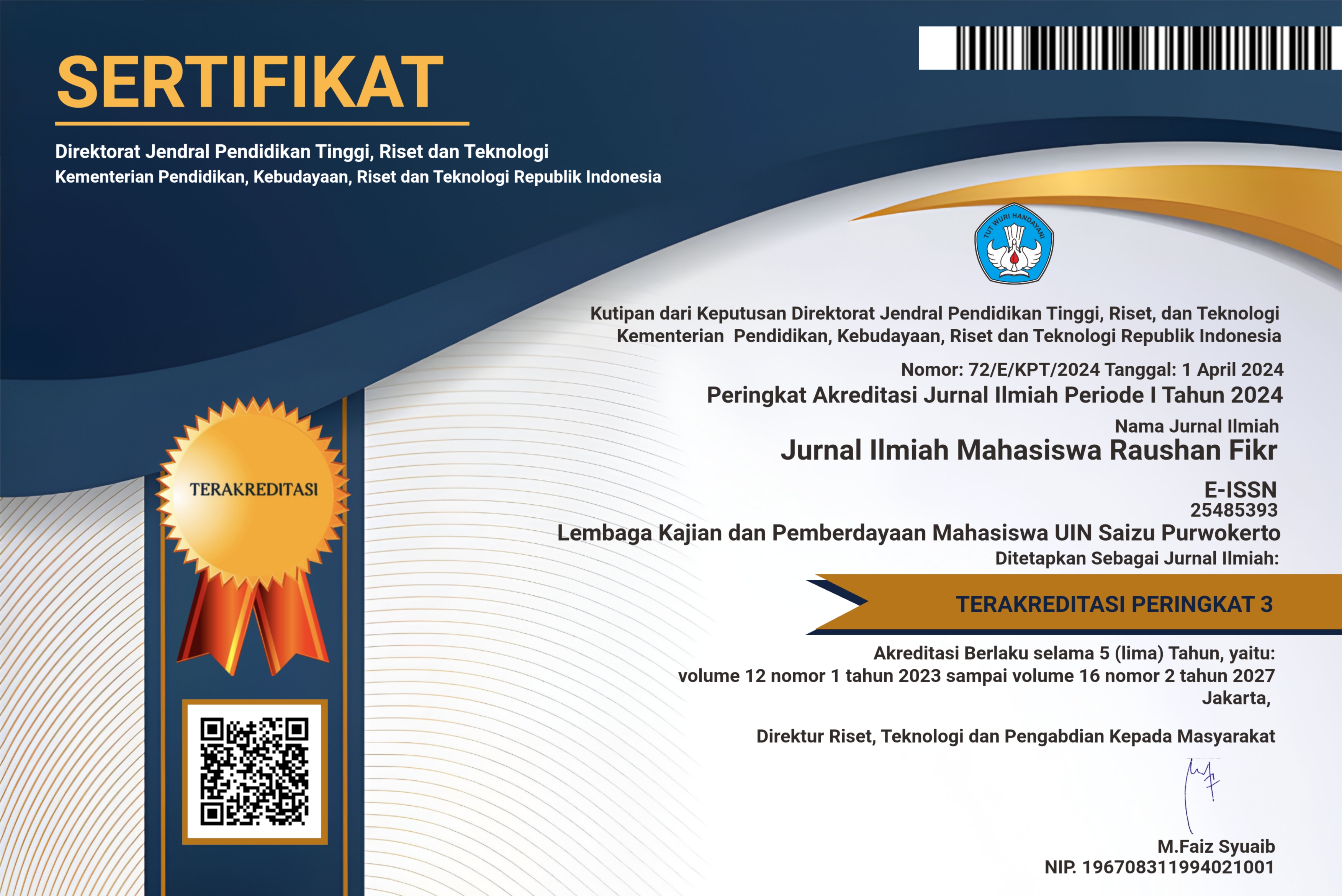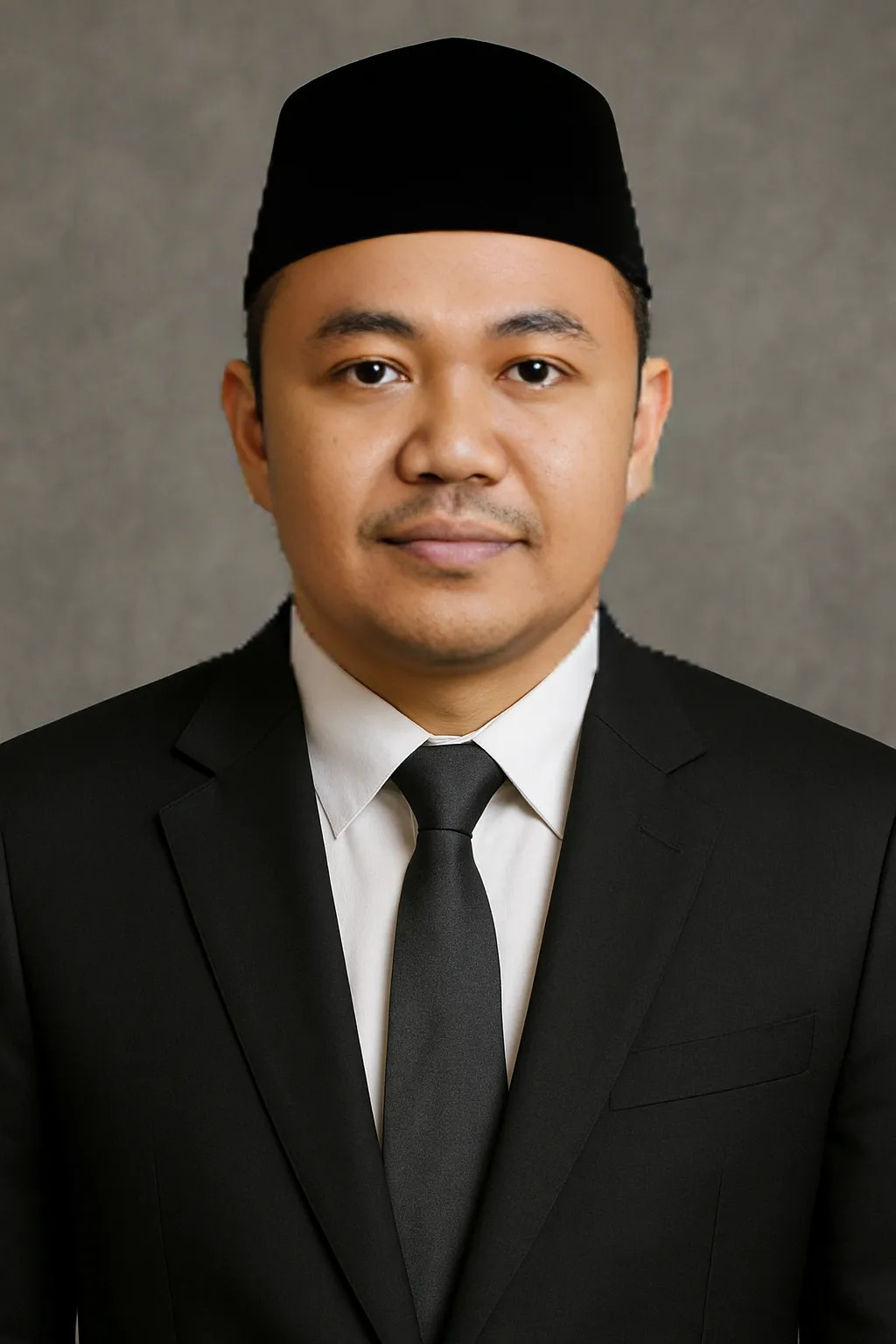The Swing Theory of Islam: A Study of Ernest Gellner Epistemology
DOI:
https://doi.org/10.24090/jimrf.v11i1.6475Keywords:
Gellner, Realitas, Sosial, IslamAbstract
Theory is the highest form of knowledge. As for the person who succeeds in giving birth to a theory, he can be said to be someone who really deserves ‘appreciation’. Gellner as a sociologist managed to read the social reality of Islam by giving birth to the pendulum swing theory in Islam - A Pendulum Swing Theory of Islam. This article tries to explain Ernest Gellner’s theory. From studies conducted show that: 1) His theory was born from his interest in Islam, for him Islam has a structure and character that is unique compared to religion outside, 2) The ability of Islam to respond to change without losing ‘identity’ makes the social response of Muslims in a level that ‘established.’ This second point, for Gellner, is the key to why Muslims’ social reality movements tend to ‘flux and reflux of religion’ as well as the Pendulum swing.Downloads
References
Cetak biru. (2019). In Wikipedia bahasa Indonesia, ensiklopedia bebas. https://id.wikipedia.org/w/index.php?title=Cetak_biru&oldid=14754251
Fajar, A. S. M. (2019). Perspektif Ibnu Khaldun Tentang Perubahan Sosial. SALAM: Jurnal Sosial dan Budaya Syar-i, 6(1), 1–12. https://doi.org/10.15408/sjsbs.v6i1.10460
Gellner, E. (1995a). Muslim Society. Cambridge University Press.
Gellner, E. (1995b). Teori Ayunan Bandul tentang Islam. In Agama: Dalam Analisa dan Interpretasi Sosiologi. Raja Grafindo Persada.
Ghazali, A. M. (2012). Bumi Manusia dalam Al-Qur’an. Jurnal Ulumul Qur’an, 21(1).
Hall, J. A. (2011). Ernest Gellner: An Intellectual Biography. New York: Verso.
Kartini. (1996). Pengantar Metodologi Riset Sosial. Mandar Maju.
Kasdi, A. (2014). Pemikiran Ibnu Khaldun dalam Perspektif Sosiologi dan Filsafat Sejarah. Fikrah, 2(2), Article 2. https://doi.org/10.21043/fikrah.v2i2.564
Mukhlishin, A., & Suhendri, A. (2017). Aplikasi Teori Sosiologi dalam Pengembangan Masyarakat islam. Inject (Interdisciplinary Journal of Communication), 2(2), 211–234. https://doi.org/10.18326/inject.v2i2.211-234
Pantheon, Roma. (2021). In Wikipedia bahasa Indonesia, ensiklopedia bebas. https://id.wikipedia.org/w/index.php?title=Pantheon,_Roma&oldid=18210800
PUSAD Paramadina | Ibn Khaldun dan Ilmu-ilmu Sosial: Tentang `Ashabiyah, Negara, ‘Sakralisasi’ Ilmu. (n.d.). Retrieved July 15, 2022, from https://www.paramadina-pusad.or.id/ibn-khaldun-dan-ilmu-ilmu-sosial-tentang-ashabiyah-negara-sakralisasi-ilmu/
Riyadi, A. K. (2018). Kajian atas Wacana Tasawuf dan Keutuhan Sosial Ernest Gellner. Teosofi: Jurnal Tasawuf Dan Pemikiran Islam, 8(2), 265–301. https://doi.org/10.15642/teosofi.2018.8.2.366-402
Setiadi, O. (2017). Islam dan Pergerakan Civil Society Kebudayaan Transnasional Hizmet Di Indonesia. Kordinat: Jurnal Komunikasi Antar Perguruan Tinggi Agama Islam, 16(1), 127–158. https://doi.org/10.15408/kordinat.v16i1.6458
Soehadha, M. (2018). Distingsi Keilmuan Sosiologi Agama (Sejarah Perkembangan, Epistemologi, dan Kontribusi Praksis). Jurnal Sosiologi Agama, 12(1), 31–46. https://doi.org/10.14421/jsa.2018.121-02
Subekti, I., Syukri, A., Badarussyamsi, B., & Fadhil Rizki, A. (2021). Kontribusi Filsafat Ilmu dalam Penelitian Ilmiah dan Kehidupan Sosial. Jurnal Filsafat Indonesia, 4(3), 229. https://doi.org/10.23887/jfi.v4i3.37304
Suprapta, B. (2016). Prasejarah Indonesia dalam Konteks Perkembangan Prasejarah Asia Tenggara: Kajian Arkeologi Pos-Prosesual Perspektif Strukturalisme Lévi-Strauss. Jurnal Sejarah dan Budaya, 10(2), 131–143. https://doi.org/10.17977/sb.v10i2.7673
Susanto, E. (2014). Radikalisasi Kehidupan Keberagamaan Perspektif Sosiologi Pengetahuan di Kabupaten Pamekasan. Nuansa: Jurnal Penelitian Ilmu Sosial Dan Keagamaan Islam, 11(1), 207–232. https://doi.org/10.19105/nuansa.v11i1.187
Downloads
Published
How to Cite
Issue
Section
License
Authors who publish with this journal agree to the following terms:
- Authors retain copyright and grant the journal right of first publication with the work simultaneously licensed under a Creative Commons Attribution-NonCommercial-ShareAlike 4.0 International License that allows others to share the work with an acknowledgement of the work's authorship and initial publication in this journal.
- Authors are able to enter into separate, additional contractual arrangements for the non-exclusive distribution of the journal's published version of the work (e.g., post it to an institutional repository or publish it in a book), with an acknowledgement of its initial publication in this journal.
- Authors are permitted and encouraged to post their work online (e.g., in institutional repositories or on their website) prior to and during the submission process, as it can lead to productive exchanges, as well as earlier and greater citation of published work (See The Effect of Open Access).
















